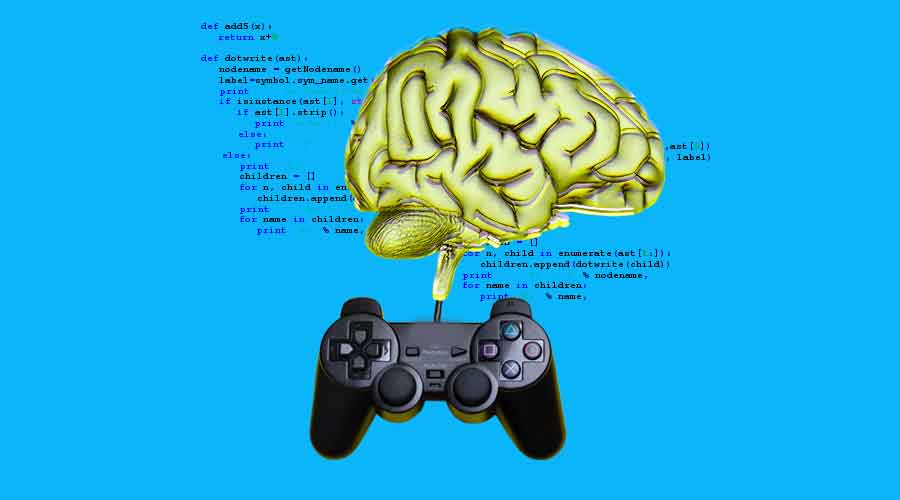
“Adaptive Gaming: Machine Learning’s Evolutionary Impact on Learning and Adaptation in Games”
Embark on a journey where the realms of artificial intelligence and gaming seamlessly converge. In the era of digital innovation, the fusion of machine learning and gaming transcends traditional boundaries, giving rise to a paradigm shift in interactive entertainment. This article delves into the captivating synergy, unraveling the profound impact of machine learning on gaming – a synergy that goes beyond mere play. Brace yourself for a exploration of how games are not just forms of entertainment; they’re becoming dynamic entities that learn, adapt, and evolve with every player interaction. Welcome to the future, where gaming isn’t just an experience; it’s a learning journey in the realms of artificial intelligence.
1. The Rise of Adaptive Gameplay
Machine learning algorithms have ushered in a new era of adaptive gameplay. Gone are the days of predictable, scripted scenarios. Now, games equipped with machine learning capabilities can analyze player behavior in real-time, adapting the game environment to match the player’s skill level and preferences. This dynamic adjustment ensures a personalized gaming experience, keeping players engaged and challenged without overwhelming them.
2. Personalized Player Experience
One-size-fits-all gaming experiences are a thing of the past. Machine learning algorithms analyze a player’s actions, decisions, and style to tailor the gaming environment uniquely. From adjusting difficulty levels to generating personalized in-game content, these algorithms ensure that each player feels immersed in a world crafted specifically for them. This personalization not only enhances enjoyment but also encourages players to explore new facets of the game.
3. Procedural Content Generation
Machine learning has empowered game developers with the ability to create vast and diverse virtual worlds through procedural content generation. By leveraging algorithms that understand player preferences and behaviors, games can dynamically generate content such as landscapes, characters, and quests. This not only reduces development time but also ensures that the game remains fresh and exciting with each playthrough.
4. AI-driven NPCs and Opponents
Gone are the days of predictable non-player characters (NPCs) and opponents. Machine learning enables game developers to create AI-driven entities that adapt and learn from player strategies. This creates a more challenging and realistic gaming experience where opponents evolve, counter player tactics, and present an ever-growing challenge. The result is a more immersive and dynamic gaming environment that mirrors the unpredictability of real-life adversaries.
5. Learning from Player Data
Machine learning algorithms thrive on data, and the gaming industry is no exception. By analyzing vast datasets of player behavior, preferences, and interactions, game developers gain valuable insights. This data-driven approach allows for the continuous refinement of games, ensuring that updates and expansions align with player expectations and desires. It’s a symbiotic relationship where the game evolves based on player input, creating a more harmonious and engaging gaming ecosystem.
6. Fraud Detection and Prevention
In the realm of online gaming, fraud and cheating pose significant challenges. Machine learning algorithms play a crucial role in detecting and preventing fraudulent activities. By analyzing patterns of behavior, these algorithms can identify suspicious activities such as cheating, hacking, or exploiting loopholes in the game. This not only safeguards the integrity of the gaming experience but also ensures a fair and competitive environment for all players.
7. Realistic Virtual Characters and Behaviors
Machine learning contributes to the creation of virtual characters with realistic behaviors and emotions. Games now feature NPCs with the ability to learn and adapt, responding dynamically to player actions. This not only enhances the storytelling aspect of games but also deepens player immersion by creating a virtual world populated with characters that evolve and grow alongside the player’s journey.
8. Predictive Analytics for Player Engagement
Understanding player behavior is a key element in the gaming industry’s quest to enhance player engagement. Machine learning algorithms analyze player data to predict preferences, playstyles, and potential points of disengagement. Armed with this knowledge, game developers can introduce targeted features, events, or challenges to keep players invested and excited about the gaming experience.
9. Training Simulators and Skill Enhancement
Machine learning in gaming extends beyond entertainment into the realm of skill enhancement. Training simulators powered by machine learning algorithms provide players with a platform to hone their skills in a realistic and adaptive environment. Whether it’s improving strategic thinking or enhancing reaction times, these simulators offer a valuable tool for players looking to elevate their gaming prowess.
10. Ethical Considerations and Player Privacy
While the integration of machine learning in gaming brings forth a myriad of benefits, it also raises ethical considerations. The collection and analysis of player data for personalization and improvement must be conducted with utmost respect for player privacy. Striking a balance between enhancing gameplay and safeguarding player information is crucial to maintaining trust in the evolving landscape of machine learning-powered gaming.


